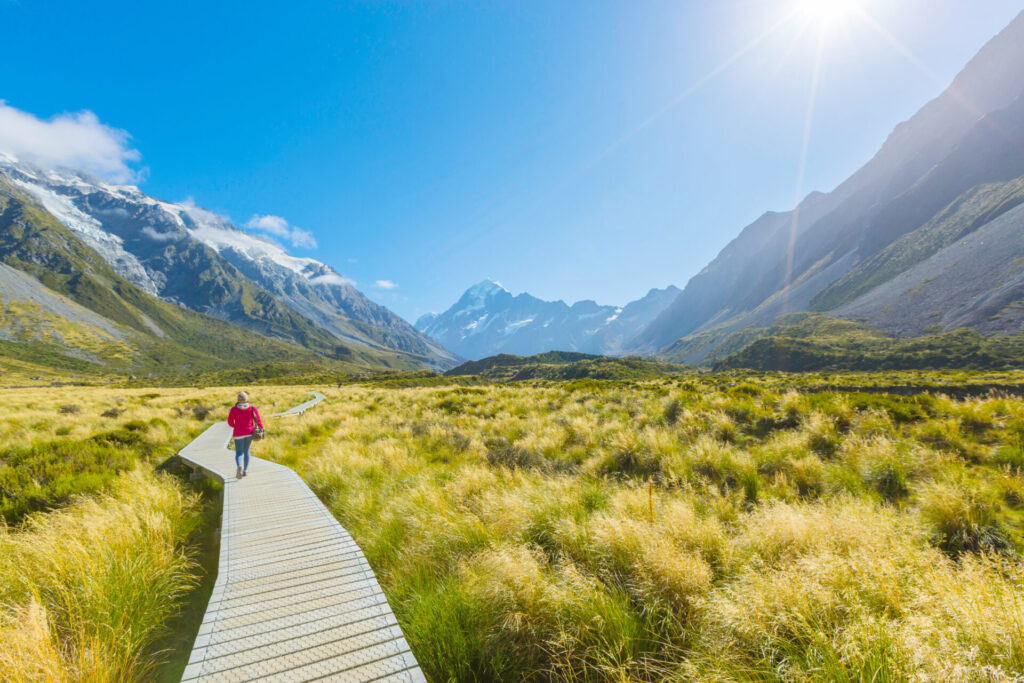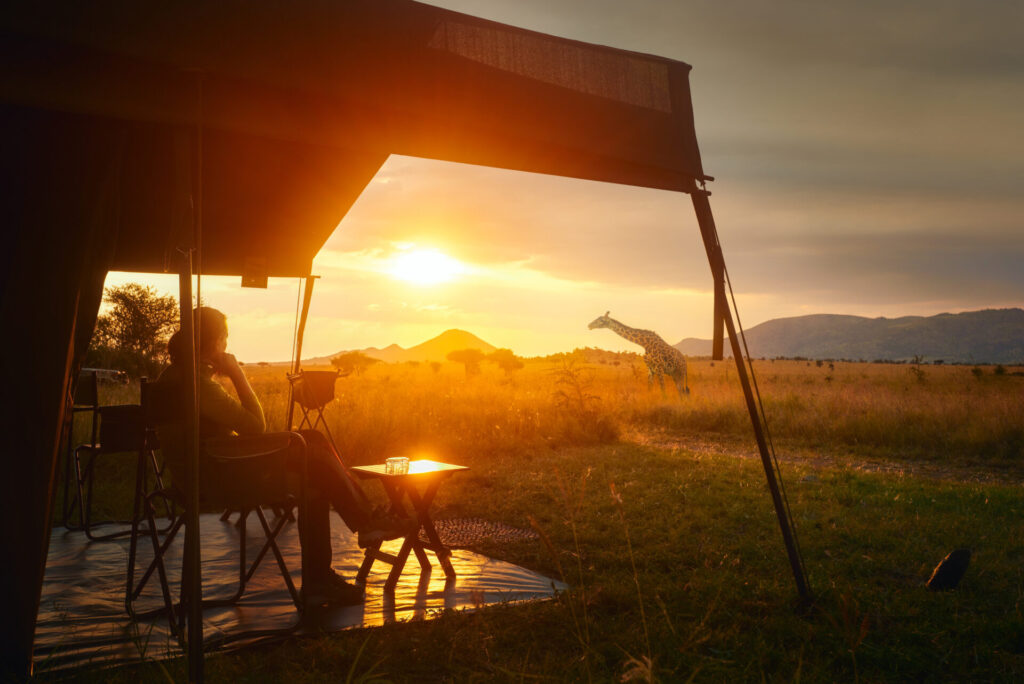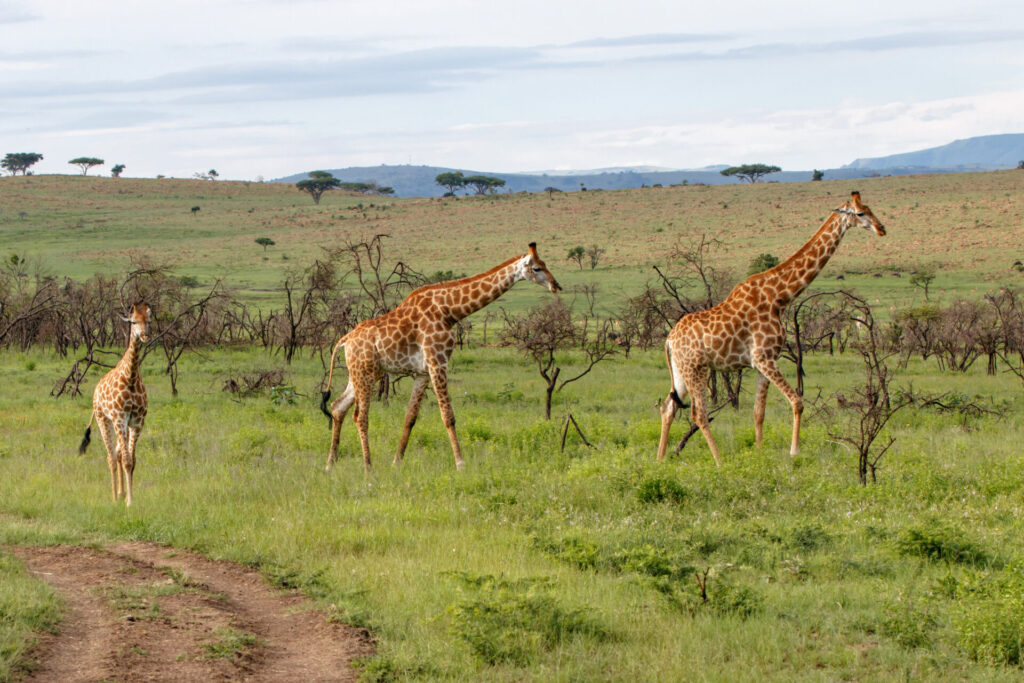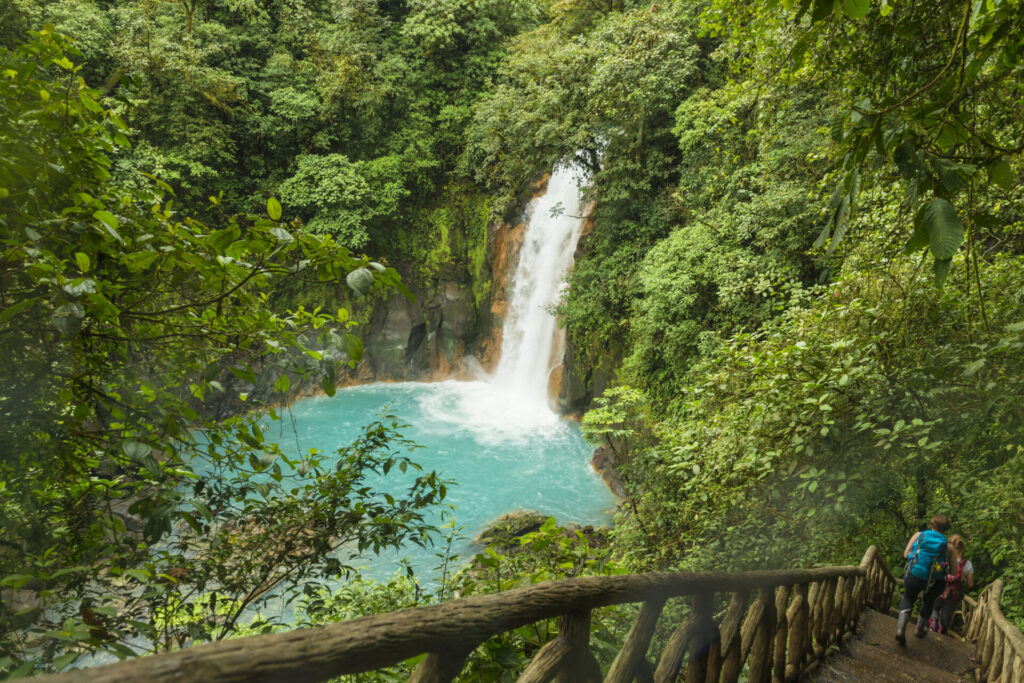According to our expert Travel Consultants, eco-friendly travel will be a major trend in 2024. After a few years of reduced tourism, we saw how wildlife and nature would return without the extra people, ships, planes, or cars.
City News reports how there has been an increase in humpback whales in B.C., while blue whales have returned to Spain after nearly 40 years. But it doesn’t stop there; the BBC states animals have been returning globally because of the reduced traffic on the streets and waterways, like dolphins in Istanbul, pink flamingos in Albania, and goats in Wales.
Because of this, many travellers are going into their trips being mindful of the impact they are leaving on the destinations they’re visiting.
A YouGov study reveals that 53 per cent of global consumers will look for sustainable travel options. Of those with plans to travel in the next six months, 72 per cent are looking for sustainable travel. Plus, 50 per cent of travellers want sustainable options and seek authentic experiences representative of local cultures.
If you’re planning your next adventure, there are many things you can do to support eco-tourism. Here are seven tips to make your next vacation environment-friendly.
Visit an eco-tourism destination

Eco-tourism destinations are places that restrict tourist numbers, promote conservation, or uplift local communities. These countries will often practice the “less is more” model and take part in educating tourists on their sustainability efforts within the country. Some trending eco-tourism destinations in 2024 are Costa Rica, Ecuador and the Galapagos, and New Zealand.
Costa Rica has been known for eco-friendly travel for some time. They have implemented renewable energy sources across the country, which power nearly the entire country. While Ecuador and the Galapagos Islands are known for their wildlife and have some of the most diverse species on the planet. They have implemented and enforced strict entry regulations to protect the natural environment. Similarly, New Zealand has set a goal to reduce the tourist carbon footprint significantly and to be net zero before 2050.
Pack better
Take time before your trip to plan your outfits and avoid overpacking. Before packing, consider the weather and activities you need clothes for. Wherever possible, pack less, as lighter luggage means fewer transport emissions. You can easily do laundry along the way in your hotel.
Avoid buying specific travel-sized toiletries. Instead, invest in reusable and refillable containers for your toiletries. Or opt for bars. Shampoo, conditioner and soap bars get a lot of use and won’t count toward your allotted liquids on a flight.
Choose eco-friendly lodging

Where you choose to stay can have a big impact on the environment. While many hotel chains are becoming more innovative, some places practice greener operations. Eco-hotels focus on responsible uses of electricity and wastewater reductions and include eco-friendly locations and programs that promote preservation.
Or you can enjoy the breathing natural landscape and opt to camp to reduce emissions. Not only does camping require fewer resources than hotels, but you get the chance to unplug and get closer to nature. Just make sure to leave the campsite as you find it.
Dine locally
One of the best parts of travelling is trying all the local dishes, from tacos made in front of you, spicy curries, or even a creamy scoop of gelato. Whenever possible, support the local restaurants as you are investing in the community.
You’ll also be helping to reduce your carbon footprint, as unlike eateries that use local seasonal ingredients, large chain restaurants typically ship out-of-season ingredients, so they have the same dishes globally. Or, if you are looking for a great way to save money, visit a farmers’ market to shop for delicious fresh products.
Be mindful when picking activities

Before planning any excursions, it’s important to research both the company and the activity to ensure you’re mindful of what you are participating in, especially regarding activities involving animals.
You’ll want to avoid excursions that advertise swimming with dolphins or riding elephants. The World Animal Protection states that travellers are increasingly picking animal-friendly holidays, with 85 per cent of people saying they would prefer to see animals in the wild.
They recommend visiting wildlife sanctuaries that protect biodiversity and allow you to see the animals in their natural habitat. Before you book other animal activities, ask yourself if the animal is being asked to perform or has unsuitable living environments.
Wildlife protection can sometimes go beyond the obvious and requires some homework on the part of travellers, but organizations like the World Animal Protection provide useful guides.
Select souvenirs with care
We all love to buy souvenirs to gift to friends and family or to remind us of our incredible adventure. Shopping at the destination can be a great way to help support local businesses, but you still need to think carefully about what you purchase.
Avoid anything made from animals, like ivory, that will increase demand for illegal trade or damage the environment.
Consider your transportation options

Walking can be a great way to see a city and find local gems off the beaten path. But many destinations offer eco-friendly travel options to get around the city, like city bikes or electronic bikes that will help you reach further destinations.
Some airlines, like are investing in sustainable fuel and carbon offsetting options. In 2022, Air Canada partners with CHOOOSE for a Carbon Offset Project Partnership that allows passengers the choice to support third party projects that reduce, capture and avoid GHG emissions.
A CAA Travel Consultant can help you plan your next trip with a reputable company that is making efforts to be mindful of the environment. They can also ensure that your travel insurance policy is up-to-date and that you’re protected if you need to cancel suddenly. To get started, book an appointment online to speak to one of our expert Travel Consultants.

